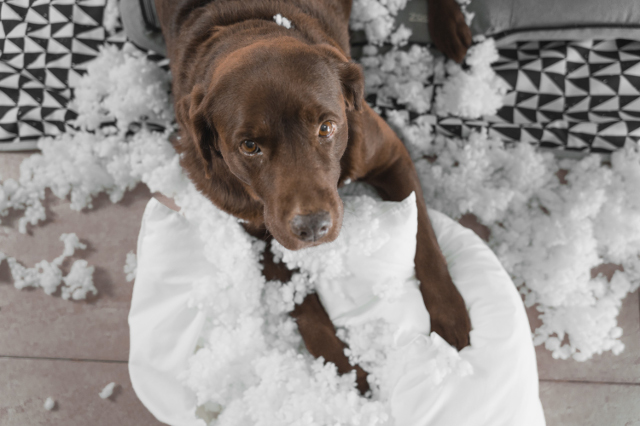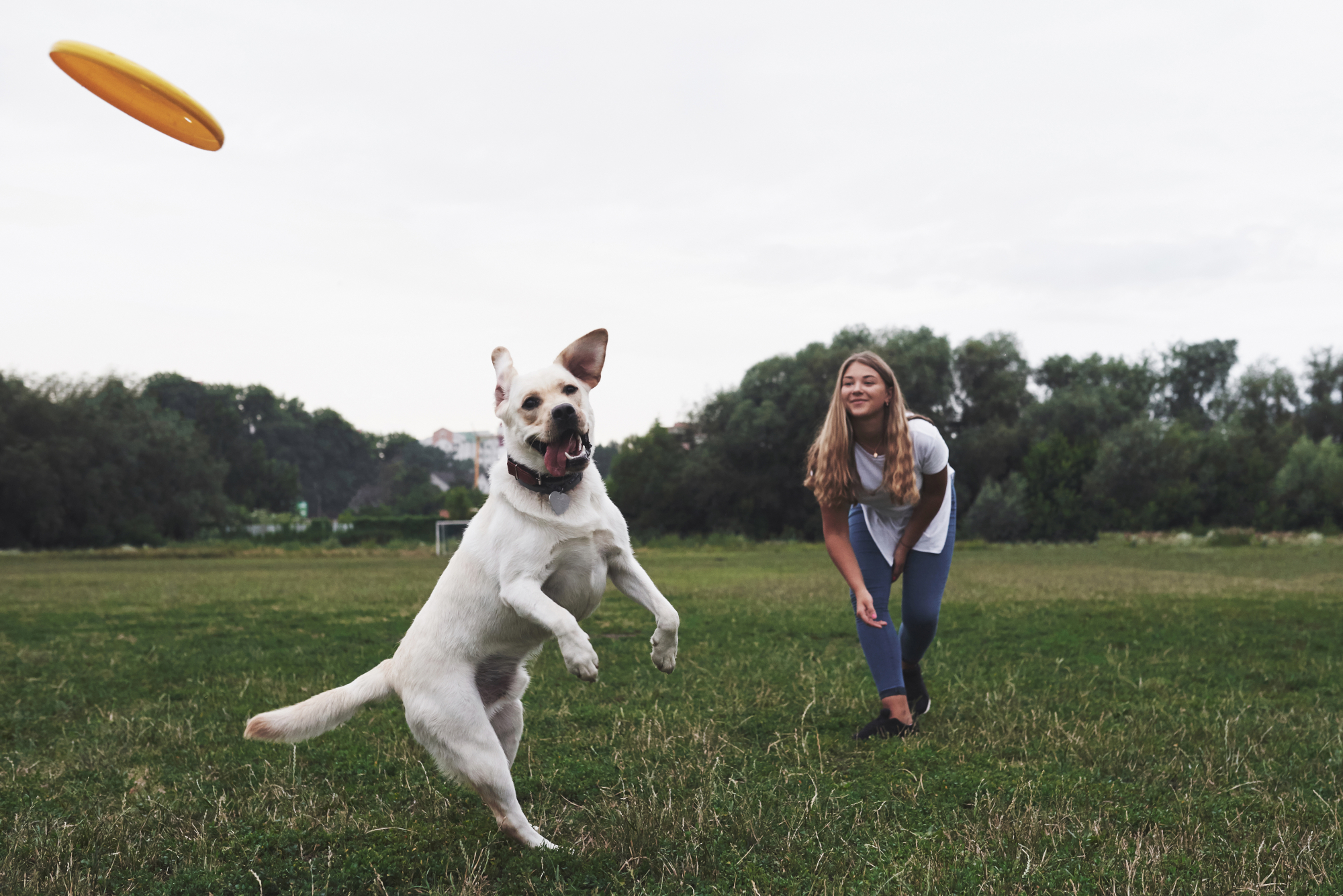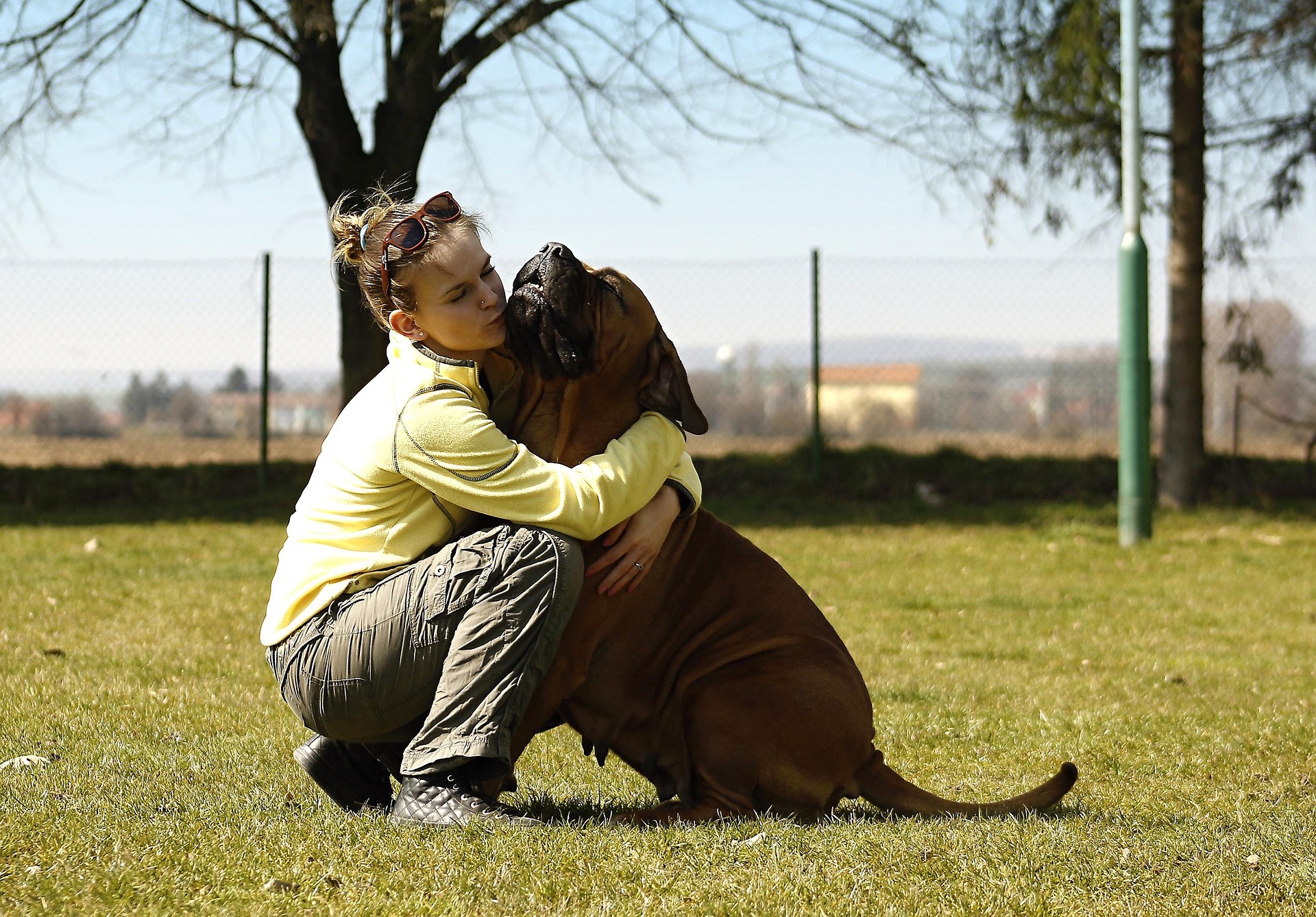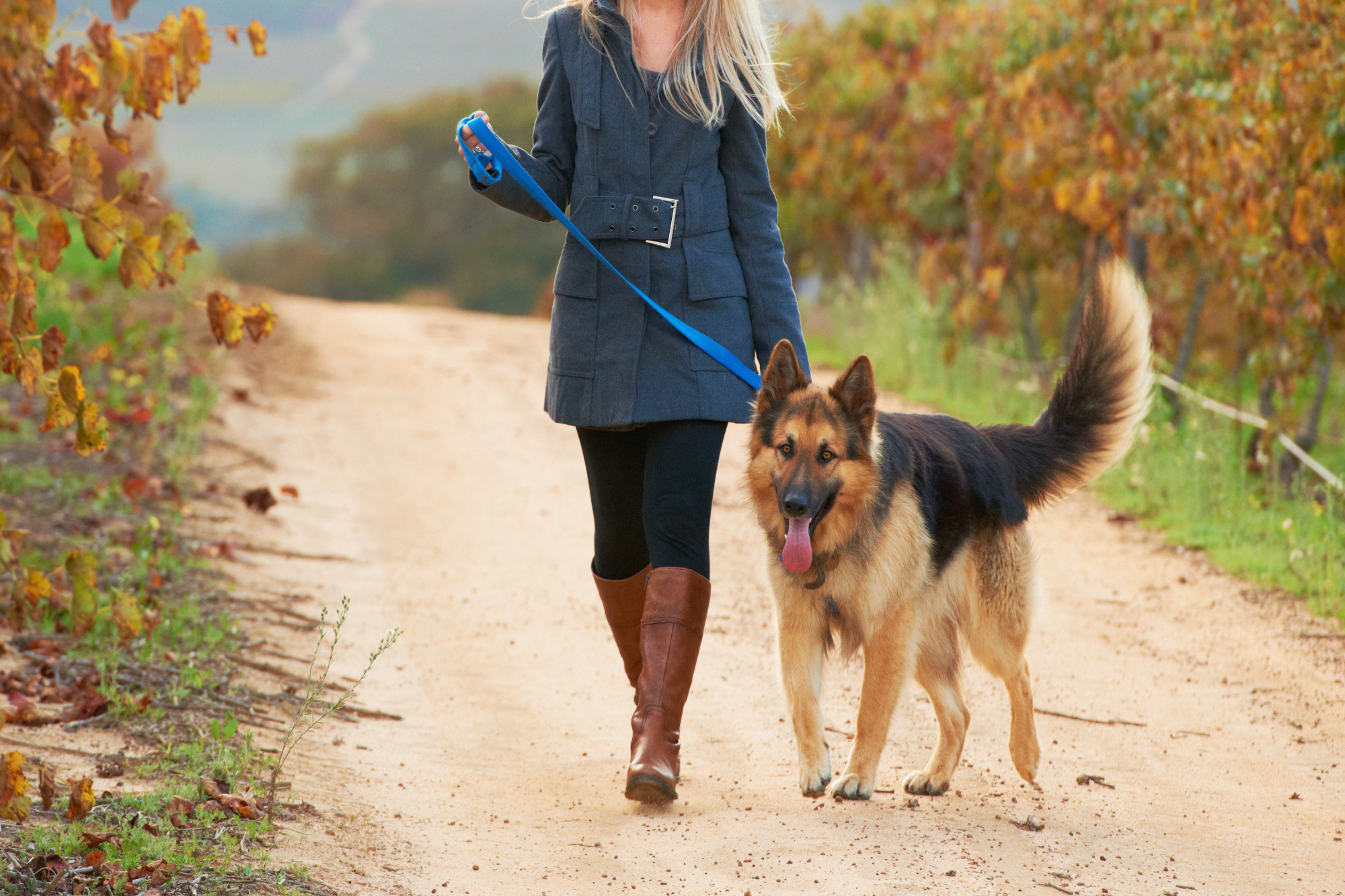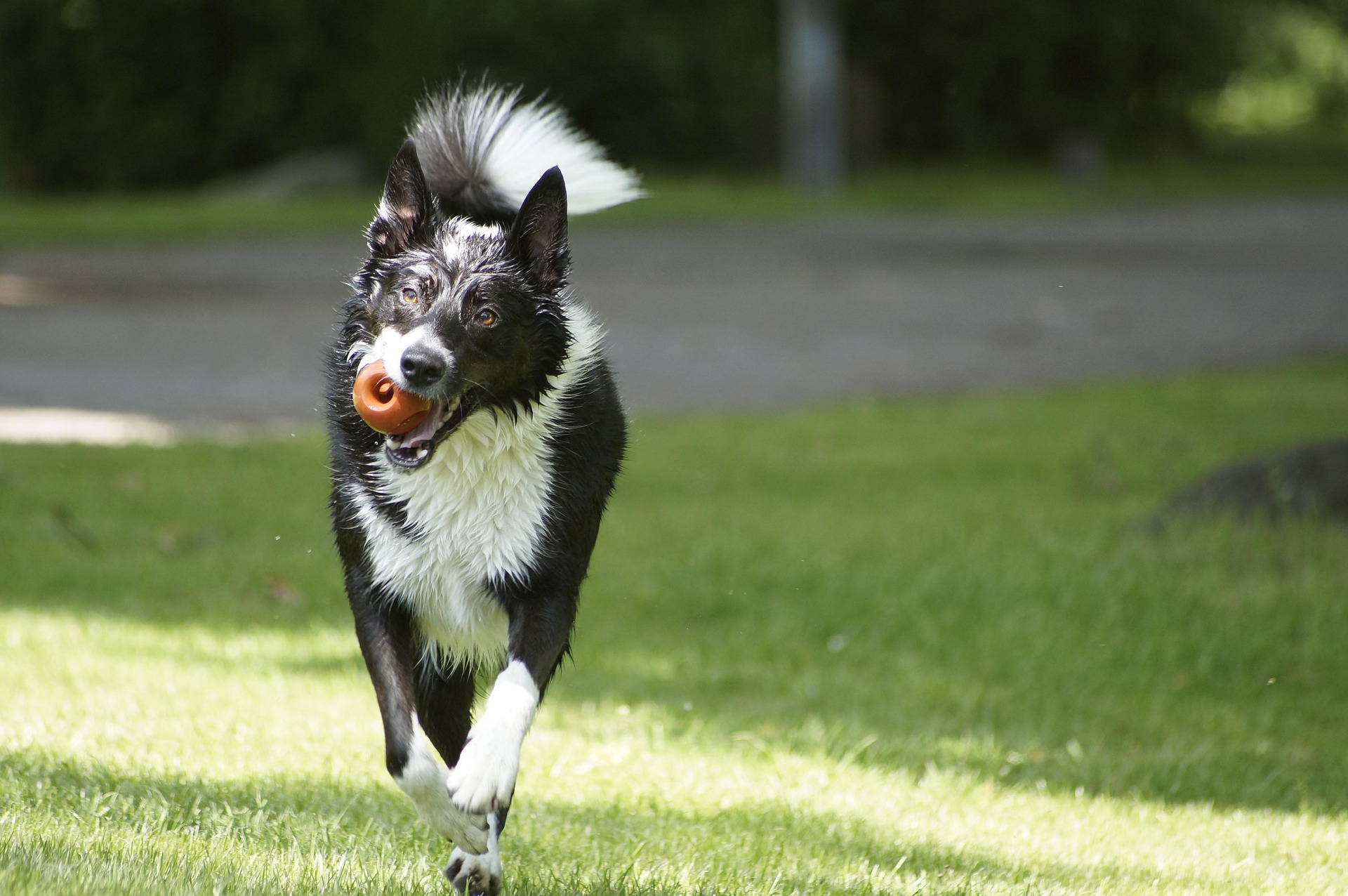From your favourite pair of shoes to tomorrow’s homework, most dog owners can relate to the frustration of realizing your pup has chewed on something they shouldn’t have.
Everyone knows that dogs love to chew on things, and in the case of chewy treats or toys, this isn’t an issue. The problem is when your dog’s chewing becomes destructive towards items that aren’t meant to be chewed.
So why does your dog just love to gnaw on off-limits things? And is there a way to prevent this troublesome behaviour?
Why do dogs chew on things they shouldn’t in the first place?
Before we can discuss the reasons for dogs chewing on your possessions, you have to understand the chewing instinct at a more basic level. Dogs chew for all kinds of reasons—not just because they’re having a snack. Here are a few reasons that a dog might chew on something or other, whether they’re meant to or not.
Self-soothing
Chewing is a very natural behaviour for a dog, and for some individuals, it can be a strategy to soothe and calm themselves as well. Every dog is different, but there are some common stressors that might lead to them chewing on whatever is at hand.
Separation anxiety is a major example of this—dogs can feel quite distraught when they’re apart from their people or the other dogs from their litter. Your dog might also chew to soothe themselves if they’re stressed by loud noises (such as fireworks), or unfamiliar people or animals in the home.
Entertainment
Sometimes dogs chew simply because they’re bored! This is particularly common in dogs who spend much of the day on their own without much in the way of stimulation. They can easily get bored (much like you probably would in that situation) and may resort to chewing on items in the home simply for something to do.
Pain relief from teething
For younger pups who are still teething (i.e. their adult teeth are coming in), the process can be quite painful. Though it might seem counterintuitive, chewing on things can actually help your puppy get some relief from the discomfort of teething.
Hunger
If dogs are still hungry after finishing their food, they may roam the house looking for something else to eat. This is also quite common in dogs who are on a low-calorie diet for health reasons. Typically, if a dog is chewing out of hunger, they’ll only go for food or things that smell like food, such as plastic dishes that haven’t been cleaned yet.
Teeth and jaw health
Strong teeth are vital for dogs, and they have an ancient instinct to do what they can to keep them in good shape. Chewing is actually quite healthy for your dog’s oral health—it helps them keep their jaw muscles strong, and can even clean your dog’s teeth in the process. This is why it’s encouraged to get chew toys and chewy treats for your pup, ensuring they have something to gnaw on without having to ruin your possessions.
Why do dogs chew on things they’re not supposed to?
Even the most obedient, well-behaved dogs have their off days. And some dogs haven’t quite internalized ‘good behaviour’. In either case, it’s not uncommon for dogs to wind up chewing on something they shouldn’t, whether it’s a throw pillow or a book. But why do dogs sometimes opt for these important possessions? Here are a few possible reasons:
- Poor training as a puppy – It’s important to teach your dog early about what isn’t ok to chew, and it can get more difficult to reinforce these good habits the older they get.
- Coping mechanism – As we mentioned before, many dogs chew as a coping strategy for stress and anxiety. If they’re in an agitated state, they may forget that certain things shouldn’t be chewed, and will instead go straight for the nearest thing in order to help themselves calm down.
- Lack of proper chew toys – Your dog might go for your loafers or the arm of your couch because they don’t have enough things to (safely) chew around! Sometimes you have to experiment with different kinds of chewables to find one your dog enjoys, whether that’s a rope toy, a stuffed animal, or something edible like a rawhide treat.
Now that you understand your dog’s motivation for chewing, you can have a clearer idea of how to improve their behaviour—and save the stuff around your home!
How do I stop my dog from chewing on my things?
It can be quite frustrating to come home and discover that something of yours has been destroyed by a chew-happy pup. So if you’re dealing with this challenging behaviour, what’s the best way to go about fixing it?
First and foremost, it’s important to set yourself and your dog up for success when it comes to chewing behaviour. Ensure that your dog has a good selection of puppy-safe toys and treats that will (hopefully) be more appealing than other items in the house. Furthermore, don’t leave important objects in reach of a dog with chewing issues! Clothes, shoes, TV remotes, etc. should all be kept well out of reach of your dog until you’re positive that chewing won’t be an issue anymore.
It’s also important to make clear distinctions between things that should and shouldn’t be chewed. For instance, don’t give your dog a shoe to gnaw on and be surprised when it assumes other shoes are okay to chew on as well! This is why it’s a good idea to invest in chew toys that are made for dogs, as it will prevent confusion.
Make sure your dog gets plenty of exercise, playtime, and stimulation to ensure they don’t turn to chewing out of boredom. The more energy they burn in their typical daily routine, the less likely they are to destroy items at home.
Finally, it’s important to be clear and consistent when teaching your dog the rules about chewing. When you catch them chewing on something they shouldn’t, clearly and firmly tell them ‘no’. Make sure they understand that their behaviour isn’t okay, and don’t stop reinforcing that until they get the message.
With that said, you should never punish your dog in any way— it doesn’t help them fix their behaviour, and will only lead to them feeling sad and confused. Instead, use positive reinforcement. Try to praise and reward your dog for chewing on toys and treats to show them what kind of behaviour is acceptable.
As you can see, there’s a lot more than meets the eye when it comes to dogs and destructive chewing. While it can be a frustrating problem, it’s completely possible to support your dog as they learn better habits and respect your possessions.
Creative Commons Attribution: Permission is granted to repost this article in its entirety with credit to Hastings Veterinary Hospital and a clickable link back to this page.

